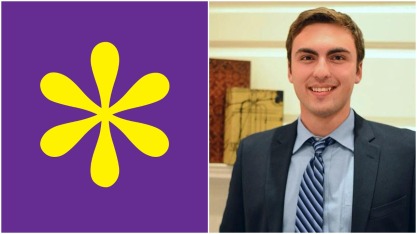Today, January 28, Georgetown University hosts the annual largest student-run anti-choice conference in the country, the Cardinal O’Connor Conference. The Conference, run by Georgetown University Right to “Life,” shames our community and is a disgrace to every member of the Georgetown family. We should be ashamed that our community hosts this conference for three reasons: its shameful speakers, its shameful ideology, and its shameful namesake.
This week, multiple members of H*yas for Choice’s leadership have pointed out the problems with the speakers at this year’s conference. Sophie Septoff highlighted some quotes of conference panelist Charles Camosy, on how women have “obligations” while fetuses have “rights,” and downplaying the importance of consent. Apparently, rape is excusable to the conference organizers as long as a woman chooses “life” and not abortion. And as our powerful Communications Director Michelle Bolt wrote, the conference seems focused only on White voices and experiences. Michelle explained the specific impacts that the Hyde Amendment has had on communities of color, something which we should pay increased attention to given the fact that its author, Henry Hyde, is a past speaker at the conference. Could they not find a single person of color to speak at their conference? Why don’t the conference organizers care what people of color have to say?
On their website, conference organizers claim the Cardinal O’Connor Conference “strives to promote intellectually rigorous discourse on the sanctity of human life a well as build a culture of life both within and beyond the Georgetown community.” They go on to talk about their goal to “encourage discussion among men and women of all faiths and backgrounds.” How can they claim to value discussion when they never invite pro-choice speakers to share their perspectives? How can they write about all backgrounds when, again, just because it cannot be said enough, every single speaker at the conference is White? Is your idea of religious diversity four Catholics and one Anglican, like your speakers? Seriously? How can they honestly claim to be a conference about life when they fail to talk about the death penalty or war or police brutality or intimate partner violence or gun violence anything that actually endangers human life? They try to obscure their true purposes by hiding behind ideas like sex-selective abortion (practically a myth in the United States, please see this 46-page report for comprehensive data), but their real purpose is to control our bodies and sexualities.
As a cisgender man, I realize that I have no right to dictate what a pregnant person does with their reproductive system. Unfortunately, Cardinal O’Connor failed to recognize the same. He believed his religion gave him the right to impose his so-called morals on others, without any exception or space for bodily autonomy. When asked about abortion in the case of rape or incest, he maintained that abortion was immoral because he considered rape a “legally lesser evil” than abortion. When discussing the deaths of women dying from unsafe abortions before legalization, he shrugged off their deaths saying “the mothers involved could have chosen not to abort.” To call him “pro-life” is particularly rich; what he really was is “pro-fetus.” He used his position as a cardinal and the Archbishop of New York to attack access to reproductive and sexual health, and dedicated himself to working against gaining access to basic healthcare.
Beyond his shameful history of weaponizing religion to control people’s bodies, he was through and through a homophobe. He is history of discrimination against queer people is long. When gay rights activists won the anti-discrimination ordinance, which banned discrimination on the basis of sexual orientation, he fought viciously to have it overturned. He banned Dignity, the gay and lesbian Catholic organization, from using any Church facilities to practice their religion. He also prevented Dignity from demonstrating on the steps of St. Patrick’s Cathedral, which the Supreme Court later ruled unconstitutional. As the AIDS epidemic raged and decimated the gay community, he worked to prevent condom distribution and called for “marital fidelity” as a response to the crisis. For him, abstaining for condom use was more important than preventing the spread of AIDS. As he actively worked against groups like ACT UP, President Reagan awarded him for his action with a seat on the AIDS commission, famous for its inaction in the face of plague. In 1989, ACT UP led a 4,500 person protest outside of a mass over which Cardinal O’Connor was presiding, in what at the time was the largest action against the Catholic Church ever. Meanwhile he pathologized “homosexual inclinations” and equated gay men with pedophiles in response to sexual abuse in the Catholic Church.
Cardinal John O’Connor was a hateful person. As a queer person, I am deeply hurt that my University condones the honoring of a man who believed that my very existence is immoral. But as a human being I am disgusted that we let Georgetown’s name be associated with his hate, and I am embarrassed to see my University celebrates him. For Georgetown to allow its buildings to be used in the name of a man who dedicated his career to hating queer people is an inexcusable attack on its queer students, and sends us a message that we are unwanted and unprotected.
H*yas for Choice is protesting this conference because it demeans every member of the Georgetown community. We will not stand idly by while anyone uses our home to spread a message that goes against everything we know Georgetown stands for. I am proud to be part of an organization that recognizes this conference for the tragedy it is, and refuses to be silent in the face of its hatred, its oppression, and its betrayal of Georgetown’s values.
NOTE: “Life” remains in quotation marks because neither a zygote, nor an embryo, nor a fetus is a life. The rhetoric of life employed by the organization is dangerous to the actual lives of the people they would force to carry pregnancies to term against their wills. To say otherwise is, in the words of Kellyanne Conway, who spoke at yesterday’s March for “Life,” an alternative fact.
Kory Stuer is a sophomore in the College studying Women’s and Gender Studies and English. He is H*yas for Choice’s Organizing Director.
















